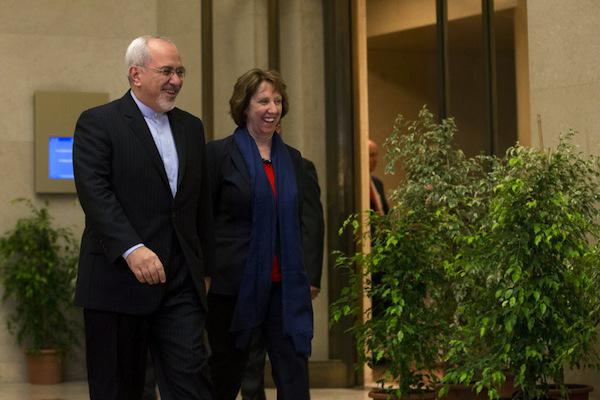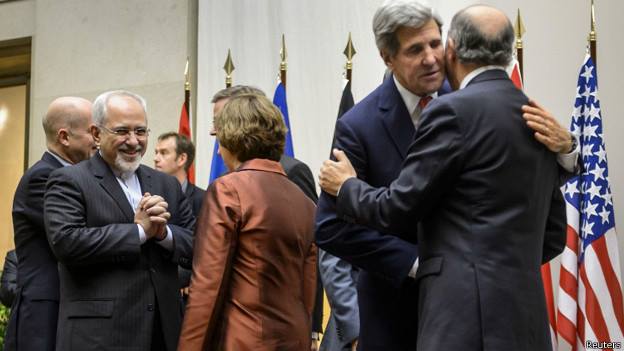All this will help Tehran address many of the outstanding problems that riddle the region, from Syria, to Iraq and Lebanon.
Iran and the Western powers finally did it. After long and difficult negotiations, they came to an agreement on Tehran’s nuclear program, which will likely have an impact on the region for years to come. But don’t expect these changes to unfold quickly – there are local powers who feel that the agreement is detrimental to their interests and therefore must be contained at all costs.
 Already Iran is in a strong position militarily, diplomatically and politically to increase its influence in the region. The gradual lifting of sanctions will go a long way to improve the country’s economic performance and increase the flow of cash to the government’s coffers. All this will help Tehran address many of the outstanding problems that riddle the region, from Syria, to Iraq and Lebanon.
Already Iran is in a strong position militarily, diplomatically and politically to increase its influence in the region. The gradual lifting of sanctions will go a long way to improve the country’s economic performance and increase the flow of cash to the government’s coffers. All this will help Tehran address many of the outstanding problems that riddle the region, from Syria, to Iraq and Lebanon.
The gradual lifting of sanctions will go a long way to improve the country’s economic performance and increase the flow of cash to the government’s coffers. In Lebanon, for example, the political deadlock that has paralyzed the government is not likely to be resolved anytime soon, as the Saudis play a key role in this file. Keeping the country hanging in this way makes it vulnerable to the kind of security breaches like the recent double suicide bombing against the Iranian embassy in Beirut.
However, all indications suggest that the West’s priority in the region – and particularly in Syria – is the fight against terrorism. Already, Syrian government forces have registered sustained advances against the armed groups on critical fronts, such as Damascus, Aleppo, and Qalamoun, with instances of opposition fighters surrendering increasing by the day.
Such successes on the ground in Syria are far more important to Tehran than to strike back against those it believes were behind the attack. While Syria’s minister of information was quick to point the finger at Saudi Arabia, Iranian officials accused Israel of being the mastermind, leaving it to radical Islamist elements to carry out the operation. Iran’s Foreign Minister Mohammed Javad Zarif went so far as to publish an editorial in the Saudi official daily, Asharq Alawsat, titled “Our Neighbors Are Our Priority,” in a reference to mending fences with Riyadh.
Nevertheless, there are countries that are not prepared to accept the increasingly dominant logic of compromise and agreement, and will find ways to escalate the crisis, like they did in Damascus on November 24, with opposition fighters launching an assault to regain some of the ground they lost in the eastern Ghouta. Despite this, we can safely say that we are before fundamental shifts in the region’s geopolitics, with the agreement on Iran’s nuclear file opening up many possibilities that will likely benefit Tehran and its local and international allies.
